Antibiotics: The Miraculous Medicines that Transformed Medicine

Antibiotics are a class of powerful medications that have revolutionized modern medicine, saving countless lives since their discovery. These drugs are instrumental in treating bacterial infections and have played a crucial role in increasing life expectancy and reducing mortality rates worldwide. In this blog, Antibiotics Transformed Medicine we will explore the history, mechanism of action, benefits, challenges, and the importance of responsible antibiotic use to preserve their efficacy for future generations.
Contents
- 1 The Dawn of Antibiotics
- 2 ADD/ADHD (2)
- 3 Anabolic Steroids (11)
- 4 ANTI ANXIETY (1)
- 5 Anti-Estrogens (1)
- 6 Antibiotics (1)
- 7 Birth Control (1)
- 8 buy Online (5)
- 9 COUGH SYRUP (2)
- 10 DEPRESSANTS AND ANXIETY (14)
- 11 Hallucinogens (5)
- 12 INJECTABLE STEROIDS (1)
- 13 MARIJUANA AND HASHISH (1)
- 14 nervous-stimulants (1)
- 15 OPIOIDS (15)
- 16 Pain Reliever (6)
- 17 Sleep & Insomnia (1)
- 18 STIMULANTS (10)
- 19 WEIGHT LOSS (1)
Must Read: The World’s Leading SilkRoad Black Pharmacy: Empowering Access to Medications
The Dawn of Antibiotics
The discovery of antibiotics can be attributed to Sir Alexander Fleming, who accidentally stumbled upon penicillin in 1928. While researching Staphylococcus bacteria, he noticed that a mold called Penicillium nota tum inhibited bacterial growth around it. This chance observation led to the development of penicillin, the first widely used antibiotic.
Mechanism of Action
Antibiotics work by targeting and disrupting specific components or processes within bacterial cells. There are different classes of antibiotics, each with a unique mechanism of action. Some common mechanisms include:
- Inhibition of Cell Wall Formation: Antibiotics like penicillin and cephalosporins prevent the formation of bacterial cell walls, Antibiotics Transformed Medicine leading to cell lysis and death.
- Protein Synthesis Inhibition: Drugs like tetracyclines and mac lides interfere with bacterial protein synthesis, disrupting their ability to grow and multiply.
- Nucleic Acid Inhibition: Quino lones and rifampin target bacterial DNA and RNA synthesis, hindering replication and transcription processes.
- Cell Membrane Disruption: Polymyxins disrupt the bacterial cell membrane, causing leakage and cell death.
The Benefits of Antibiotics
Antibiotics have had a profound impact on medicine and public health:
- Treating Bacterial Infections: Antibiotics effectively treat a wide range of bacterial infections, from minor skin infections to life-threatening conditions like pneumonia and sepsis.
- Reducing Mortality: Before antibiotics, infections were a leading cause of death. These drugs have significantly reduced mortality rates from bacterial diseases, saving millions of lives worldwide.
- Supporting Medical Interventions: Antibiotics are crucial in supporting various medical interventions such as surgeries, cancer treatments, and organ transplants, where the risk of infection is high.
Challenges and Concerns
Despite their numerous benefits, antibiotics present several challenges and concerns:
- Antibiotic Resistance: Overuse and misuse of antibiotics have led to the development of antibiotic-resistant bacteria. This poses a serious global health threat, as infections become more challenging to treat, leading to longer hospital stays, higher medical costs, and increased mortality rates.
- Side Effects: Like any medication, antibiotics can have side effects. Common side effects include gastrointestinal disturbances, allergic reactions, and adverse interactions with other drugs.
- Impact on Gut Microbiome: Broad-spectrum antibiotics can disrupt the balance of beneficial bacteria in the gut, potentially leading to conditions like antibiotic-associated diarrhea or Clostridium challenging infection.
The Importance of Responsible Antibiotic Use
To combat antibiotic resistance and preserve the effectiveness of these life-saving drugs, responsible antibiotic use is crucial. Here are some key practices:
- Only Use Antibiotics When Prescribed: Take antibiotics only when prescribed by a qualified healthcare professional, and follow their instructions carefully.
- Complete the Full Course: Always complete the full course of antibiotics, even if you start feeling better, to ensure complete eradication of the infection and minimize the risk of resistance.
- Avoid Using Leftover Antibiotics: Never self-diagnose or use leftover antibiotics from previous prescriptions, as they may not be the right medication for the current infection.
- Promote Infection Prevention: Practice good hygiene, such as handwashing, to reduce the spread of infections and decrease the need for unnecessary antibiotic use.
Look Our Categories:
-
ADD/ADHD (2)
-
Anabolic Steroids (11)
-
ANTI ANXIETY (1)
-
Anti-Estrogens (1)
-
Antibiotics (1)
-
Birth Control (1)
-
buy Online (5)
-
COUGH SYRUP (2)
-
DEPRESSANTS AND ANXIETY (14)
-
Hallucinogens (5)
-
INJECTABLE STEROIDS (1)
-
MARIJUANA AND HASHISH (1)
-
nervous-stimulants (1)
-
OPIOIDS (15)
-
Pain Reliever (6)
-
Sleep & Insomnia (1)
-
STIMULANTS (10)
-
WEIGHT LOSS (1)
Must Read: Buy Magic Mushrooms Psilocybin Online: Navigating the Landscape of Psychedelic Experiences
Conclusion
Antibiotics have undoubtedly transformed medicine, providing a lifeline to countless individuals battling bacterial infections. However, their efficacy is threatened by the rise of antibiotic-resistant bacteria, making responsible antibiotic use a shared responsibility for healthcare professionals and the public alike. By using antibiotics responsibly, we can ensure that these miraculous medicines remain effective tools in the fight against infections, safeguarding public health and preserving the legacy of these medical marvels for generations to come.



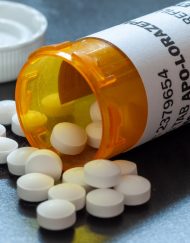



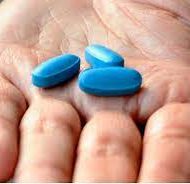




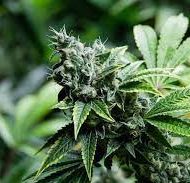
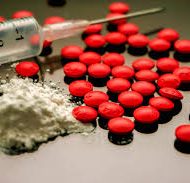



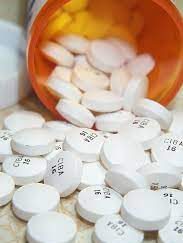

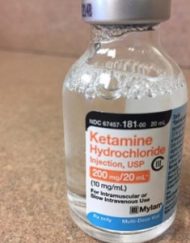

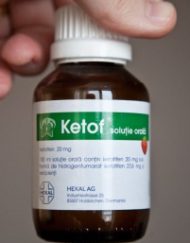

Recent Comments